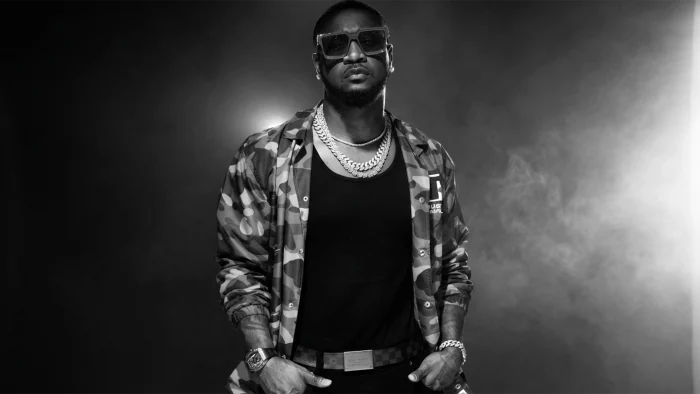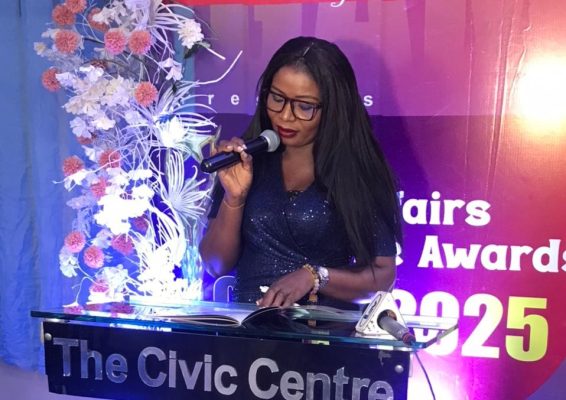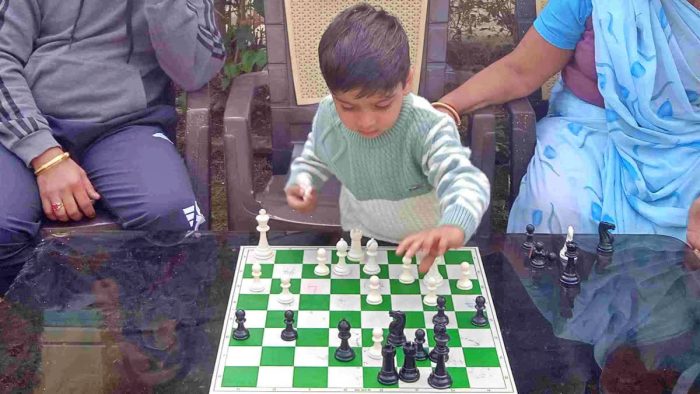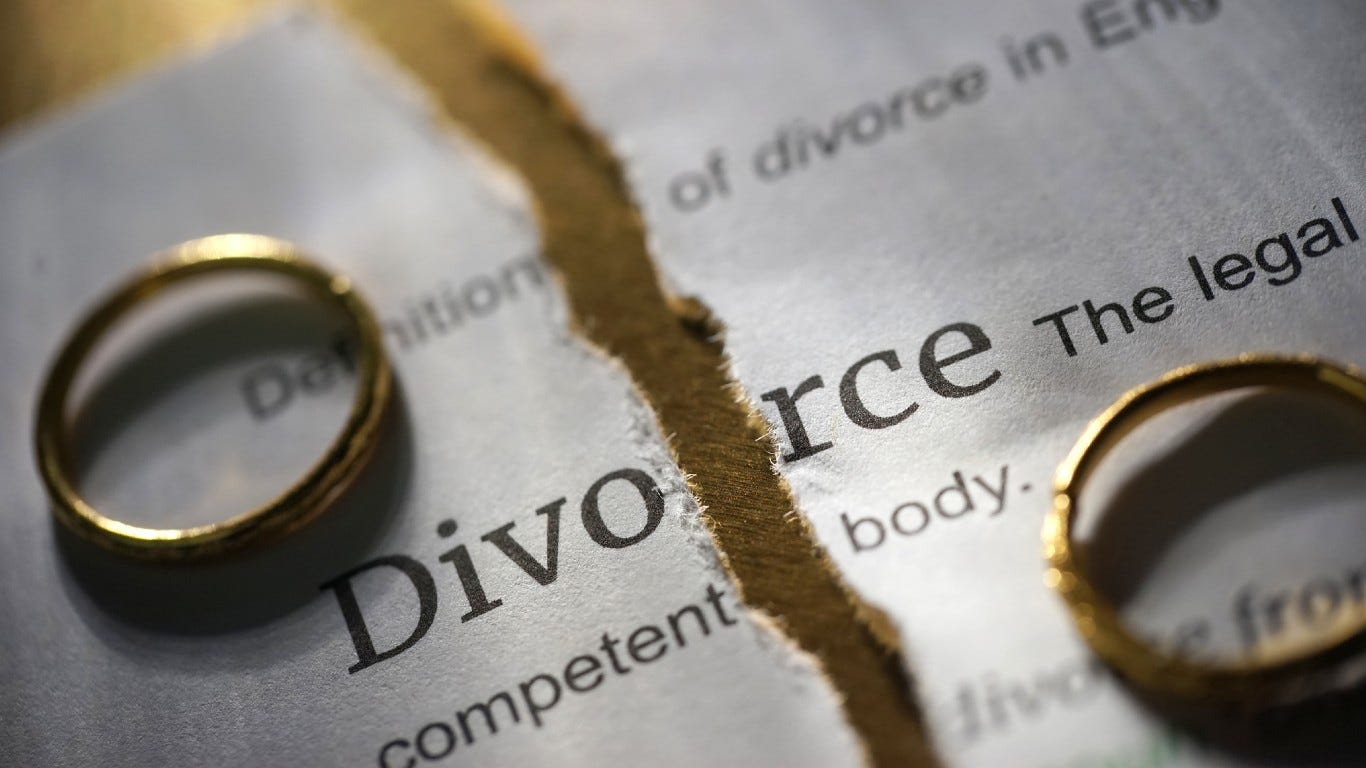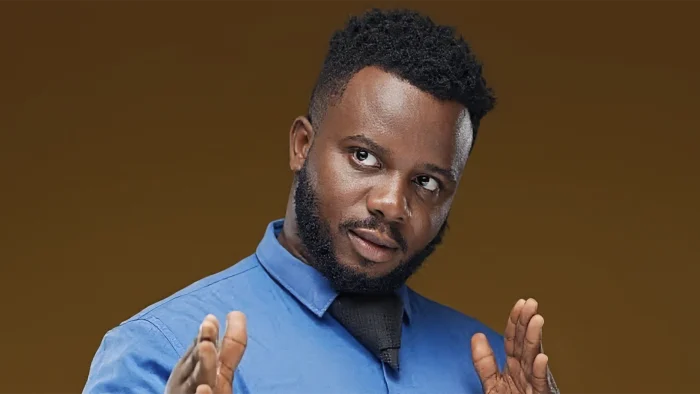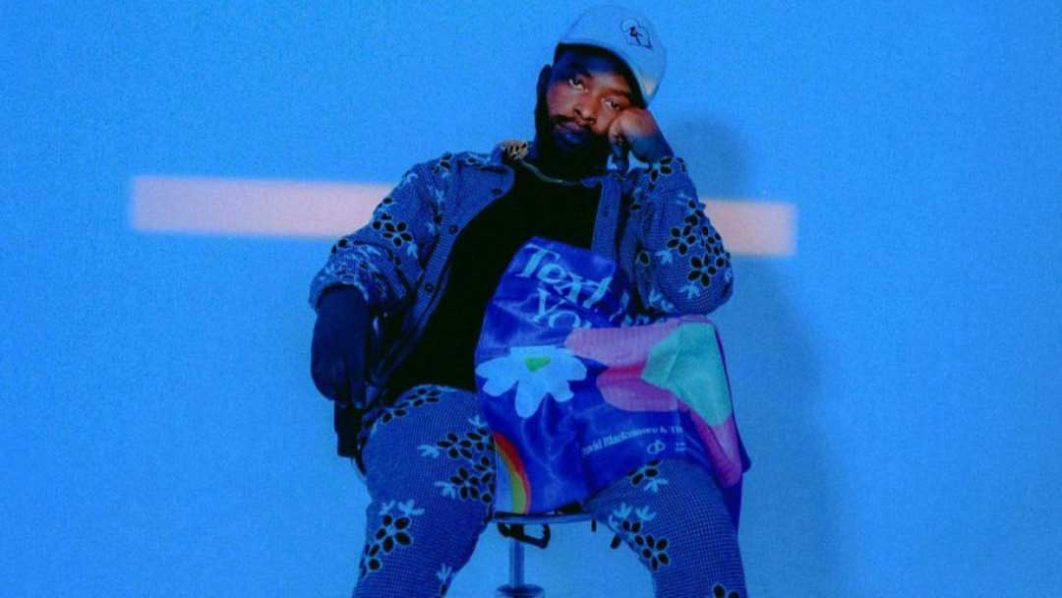
The year is 2023. Alternative music is at the forefront of Nigeria’s biggest music exports since it started gaining momentum in the early 2010s. Nigerians are more tuned to more mellowed and soul-seeking music. Monthly streaming data show that younger, bohemian musicians are getting cult-listenership without backbreaking budgets or label influence.
And then there’s Tim Lyre, enigmatic producer-artiste who is fusing the radicalism of this new wave with a deep desire to make people-centered music that offers peace and comfort.
Exactly a year ago, Lyre (pronounced Lay-Ray) stepped out with his latest album dubbed, Worry Less. In the middle of a COVID-19 pandemic, Lere found himself puzzled about life, pushing him further down a life trail that began for him at age 10. The result was a 9-tracker album (14 tracks on the deluxe) with vintage melodies, boundary-blurring fusions that matched the depth of Lyre or other sound whiz’ like Tena Tempo, DAP The Contract, Lex Amor, July Drama, Lady Donli, Kobla Jnr, and Mojo AF. One year down the road and the artsy ensemble remains relevant as one of the most significant and acclaimed soundpieces in the Alternative music community in a long time.
The Afro-futuristic singer sits down with Guardian Music, dissecting the muses for the album, as well as his journey from Law school to global stages, as well as why the Alternative music scene is bound to rise to the centre stage of global attention.
[ad]
How does it feel dropping your project when you did?
First of all, it’s a relief because I’ve had the project for a long time.
What do you mean for a long time?
I started recording in 2019.
Why?
Initially, I knew I was going to make an album; I was going to take my time. I figured it’s probably going to take me like a year max. Because I am a perfectionist and I will want to make sure it sounds a certain way.
However, 2019 came, 2020 then came and things like COVID-19 started happening. The world was now different. Everybody just had to rearrange. So, I was trying to figure that whole thing out.
It’s the label setting, yeah?
Yeah, it’s an independent label still though. And it’s the first time I have this sort of structure behind me. I also wanted to take advantage of that as much as I could. So, we took time to figure out the legal side, just the business side of that. But everything kind of came together in its own time.
I am the kind of person that doesn’t believe in forcing things. If it’s just not right, it’s not right. When the moment finally came and we felt like we can just go for it, we started doing it. I think I am happy with the way things have gone so far. I’m happy it’s even out there, that’s why I said it’s a relief because it’s been a long time coming.
[ad]
Speaking of ideas, what inspired the idea for Worry Less?
It’s as the name sounds. The world is a very chaotic place. Even if it’s just my own personal day, I find it hard to keep focus. Like so many things are happening, especially if you are a Nigerian that lives here and within my age group as well. Nothing really works. I saw TG Omori tweeted like two days ago, say na only Afrobeat dey work for this country. So, it’s like I just needed to make something that just could kind of not make you forget all that. It feels good and it’s exactly like the name sounds. Once you plug in, everything just falls away. No stress, you’re just listening to nice jams. You can just be playing the songs in the background and doing whatever you are doing. It’s that type of music, you get.
Music itself, how did it come to you, when did you start?
I’ve been doing music my whole life. Since I was 10, I started playing like actual classical piano lessons. I could read music; I know music theories and all. I grew up in church as well, so I had that choir background.
In Lagos?
Yes, in Lagos- Ebute Meta actually. I played the organ. I have arranged songs for big choirs and all of that. So, I have like a very weird but extensive catalogue; and it was from that Gospel side. Just from learning piano, you just start exploring different things; you start playing jazz, R&B, things like that.
Naturally, I started listening to my own type of music. And growing up, you know there’s a type of music we grow up around as well in Nigeria. So, that has always been there, it’s like I’ve just kind of been a musical sponge my whole life; I kind of take everything in.
How did you experience or discover that alternate sound to you?
I think I will just give the credit to Sound Cloud, because that’s what happened there. Everybody just started posting Sound Cloud at some point. And me, I was always just on the look out for new music. Like I said before, I had that kind of sponge mentality. I just wanted to find new things all the time.
[ad]
So, when I went to Sound Cloud, that was were I first came across people like Ego, Lady Donli, and till today I am friends with these people. I guess it just opened the possibilities to me a lot more. Like these are the people that are doing their own thing; it’s different and it sounds crazy. And Sound Cloud was like anybody could just post your music one day. It was a very free place where people could just express themselves and so. I think from there, I was able to figure a lot of things out.
And then when you entered, how was the industry in session, viz-a-viz your own idea or concept of what you wanted your sound to be like?
It was a struggle initially, because I know what my music was like. Now, I am a lot more confident. I can say that I’m purposely doing it, like I know that it is on purpose that my music sounds a certain way.
Back then, I was still like kind of just following things out; I had so many ideas but I may not have executed them the best way. They were still solid ideas and I still got a lot of incredible feedbacks from people that today; I still see them following my music. And it’s crazy for me to say that I still have fans that once knew this person has followed my journey since 2012. It’s insane to me. This is like 2022 and that’s like a full 10-year length; it’s just insane to me.
So, you built that portfolio from scratch?
Yeah. I knew there were people who kind of got in from day one, anyway. So, that always gives me extra fuel. Even if I were in and out at certain point, I would always come back because I knew that.
How were you able to navigate it- the funding, the mindset, everything, how was it like?
It’s tough. A lot of it is will power, because at a certain point, I really made up my mind that I was going to quit music and just go and face my work.
What year was that?
It was 2018; this was when I first came back actually. Like I said to you earlier before we started this interview, I went to school in 2012, actually. Between 2012 and 2015, I did my undergrad in University of Reading. I studied law for three years, came back to Nigeria for law school. Did the full law school, graduated, I was called to bar and everything. Like, I worked for law firm and after that, I went back to England for my masters for one more year. I did my masters in Entertainment Law, University of Westminster. Then I came back to Nigeria.
[ad]
When I came back to Nigeria in 2018, my mind was like, ‘okay, let me try and be a full time musician,’ but the reality that hit me. I think I just had to take a step back and reassess a lot of things in my life. And it’s not easy, like you said. Things like funding, is not easy. But normally, I have a lot of skills.
I am a producer; I mix and master music for people. I am a songwriter as well, so I can find ways to fend for myself on a day-to-day basis. Thankfully, things are getting a lot better now. But initially, it was a struggle finding a constant flow of money, because a musician’s life is like you fit just dey lucky win, one week everybody dey find you for like two months, no sapa. So, you really have to be kind of smart and resourceful at the same time. You have to just find ways to keep yourself afloat especially if you want to make it. I just kind of try to keep the focus as much as I could.
And now, do you feel it’s paying off?
Yeah, definitely! It’s definitely paying off. This music now is like a relief. Another reason I said relief is that it’s almost like an experiment in this album. Like you said, I feel like it’s music people have not necessarily heard before from the way it was made.
Again, some people might not like it; some people might like it. But the reactions have been so unbelievably positive; it has given me even more confidence to go for it, because I know that I’m on the right path. So, it’s definitely moments like this that are enough for me to forget all the sacrifices or anything that might have happened, you get.
Sometimes, it’s crazy and you know how it is in the Nigerian family. My father is an old fashioned Yoruba man; I love my father. But my father knew why he told me to go and study law. He is a very successful lawyer, so it is like I fully just ignored the path that he had laid out for me.
What’s your creative process?
There are two things that are important for me when I am making my own music. And just music for anybody in general, like people around me: The sound and the feeling. So, it’s like I know what something should sound like, in terms of when something should be good. I think that one is just a function of me being a musician my whole life. Once been playing in bands. I kind of just know what kind of chord works, what progression works.
So, for me, it’s finding the next thing now. And so, I find that even more exciting. The prospect of making something that someone has never heard before. Luckily, I have all these influences I can draw from. So, for me, it’s just a function of like this is what I want it to sound like and then what do I want it to look like and am I talking about on the song.
A song like Real now, I don’t know if you’ve heard Real? For most people, they will think it’s a love song. It seems like a love song, but love is like a very complicated emotion. A lot of love songs you hear, they say, ‘oh my baby, I love you.’ Many things dey happen if you and a person dey relationship. That kind of song is I releasing all those things at once. It’s still impossible.
So, it’s like I will purposely think of that ‘okay, this is what I want to do with this song;’ I will purposely tap into the emotion. So, even if you don’t particularly relate to my story, you will relate to the feelings.
[ad]
Do you produce most of the songs you make?
I produce most of my songs, but I work closely a lot now with Ronehi. Ronehi is another producer in Chop Life Crew, which is a group I am part of. He and I produce maybe 80 per cent of the album and then I produce couple of songs myself. But then, there is a song that we did with Lemaf and then there is another song we did with someone else. And I did something with July Drama as well.
In terms of influence, what kind of people influences your music?
Hmmm, my favorite artiste is Asa. People always find that surprising, but I think she is a level above a lot of people. That her first album, her self titled album, is one of the only albums till today that I can sing almost every single song for you word for word. I feel like once I hear that album, I’m like, ‘if I ever want to write my own songs, this is how I want to write my own songs.’ She writes in such a way that is very honest. Like she understands people. So yeah, she’s one of my favorite artistes ever. This is her latest album; I’m just so happy that she thought of doing something like this.
Also, there are different other genres that I draw from. It’s high-life. I have different highlife artistes I go to- Sir Victor Uwaifo; that’s one of my muse. Victor Olaiya is also one of top artistes. I listen to Ebenezer Obey a lot. And then there’s Afro juju stuff too; I think it’s just unique.
That means you go with The Cavemen too?
Of course, those are my people. It’s just unique. They’ve brought highlife into a completely new era. So, it is so insane to see something like this happening.
Do you guys have a record together?
Well, we’ve worked together, but nothing is out yet. I have known them for a while just from moving around in this industry. There was a time I met them long ago when I use to go to Choc City at some point, but it’s just crazy seeing their own journey as well. That their last show was so crazy.
[ad]
Speaking of boundaries, do you consider alternate music to have a future with the way it is going now?
Yeah, I think it definitely does. It is good to see artistes like Tems and Santi even Odunsi. Like there are artistes that have crossed through that even certain artistes have not, like in other countries outside Nigeria. So, it’s like they’ve opened doors for people that want to think in that way.
I don’t think there has been a better time for you to try something new than now in Nigeria. It is a lot easier for you to try and do that now than it was five to 10 years ago. So, I think yes, there is definitely a future for it if this is the progress that it has made.
Can you work with mainstream artistes?
Yeah, I do find them. Like there are so many out there. Wizkid is one of my goats. I feel like me and Wizkid would make an insane song.
Who else?
There are so many people. Omah Lay is one of them, even OBO, I dey find Baddest. I feel like everybody is so good at what they do and people should actually just appreciate them for that, as opposed to trying to out everybody against each other.
[ad]
I understand that it is a competitive industry, but we should really appreciate the fact that there are people like Burna Boy, Wizkid, and Davido doing the things that they are doing for this country, because bro, nothing dey work for here.
I think most alternative guys like to be known in the diaspora.
Yeah. Music is very universal in ways that people don’t understand. E go get person wey go message you from India, from random places where you have never been, because your music don reach there. Even if you are the one person, they don hear am. So, you shouldn’t limit yourself in terms of what you are doing because anything is possible.
Do you think people would get tired of Afro pop?
Of course, I don’t even think that people will get tired. I think they will start to understand that there are better ways; there are different ways. Like you shouldn’t be so focused on one thing.
So, tell us three things people don’t generally know about you.
I guess that lawyer thing is one. A lot of people don’t know that I could literally be practicing, being in the courtroom right now. I watch a lot of Animes. I guess I don’t publicise it as much as other people do. Lastly, I am a big football fan; I am a Chelsea fan.
Tim Lyre, what is the future for you?
Honestly, I want to continue to push boundaries in my music. I am happy that people identify that through this album that it sounds different from the other ones. And it is intentional. I had a lot of ideas that I feel like I am yet to even execute. So, I am just eager to make more music. I am starting to meet more people now. It’s like things are just getting a lot more interesting. I am just so excited to make more music.
[ad]


